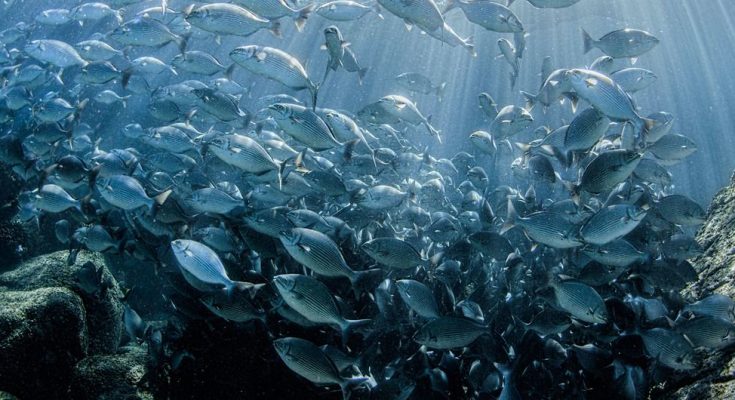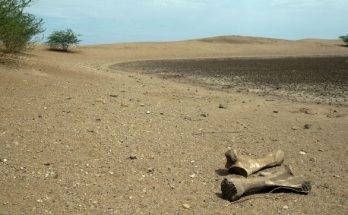The ocean is under siege – and greed is to blame. UN Secretary-General António Guterres on Tuesday urged world leaders and grassroots groups to confront the powerful interests driving marine destruction, from illegal fishing and plastic pollution to the accelerating impacts of climate change.
Mr. Guterres’ stark assessment came during a press conference on the second day of the UN ocean summit, known as UNOC3, where hundreds of government leaders, scientists and civil society groups are gathered on France’s Côte D’Azur. Their mission: to confront the escalating emergency facing the world’s oceans.
Greed is a ‘clear enemy’
“We are in Nice on a mission – save the ocean, to save our future,” the Secretary-General said, and warned that a tipping point is fast-approaching “beyond which recovery may become impossible.”
According to the UN chief, greed sows doubt, denies science, distorts truth, rewards corruption and destroys life for profit. “We cannot let greed dictate the fate of our planet,” he insisted.
Calling on all stakeholders to assume their responsibility in pushing back against these profit-hungry forces, the Secretary-General said: “That is why we are here this week: to stand in solidarity against those forces and reclaim what belongs to us all.”
He cited four priorities for governments, business leaders, fishers and scientists, saying “everyone has a responsibility and a vital role to play”:
- Transform ocean harvesting – It’s not just about fishing, it’s about how we fish. We must meet the globally agreed “30 by 30” goal to conserve 30 per cent of oceans by 2030.
- Tackle plastic pollution: Phase out single-use plastics and improve recycling; and finalize a global treaty to end plastic pollution this year.
- Fight climate change at sea: Countries must submit bold climate plans ahead of COP30 in Brazil. Plans must align with the 1.5°C target and cover all emissions.
- Enforce the High Seas Treaty: Ratify and implement the new treaty, known by the shorthand, BBNJ treaty, to protect marine biodiversity, and urge all nations to join and bring the agreement into force.
Calling for a grand global coalition of governments, business leaders, fishers, scientists, the Secretary-General urged everyone to step forward with decisive commitments and tangible funding.
“The ocean has given us so much. It is time we returned the favour.”
Don’t let the deep sea become the ‘Wild West’
Responding to questions at the press conference, Mr. Guterres emphasized another critical issue: the fight against deep-sea mining.
Reiterating his warning from the opening day of the conference that the deep ocean must not become a “Wild West” of unregulated exploitation, he voiced strong backing for the ongoing work of the International Seabed Authority in addressing this growing concern.
After his press conference, the Secretary-General went Nice’s picturesque Port Lympia and boarded the Santa Maria Manuela, a Portuguese four-masted schooner, where he met members of the Oceano Azul Foundation, a Lisbon-based organization promoting efforts to reverse the destruction of ocean environments around the world.
An end to deep sea mining
As the second day of UNOC3 gets under way, the lines outside the conference venue remain just as long as they were on opening day, but the atmosphere has shifted.
The stern-faced dignitaries and their security details are still very much present, but they have been joined by a more animated crowd. Grassroots activists and civil society groups now fill the space, bringing fresh energy and determination as they step up to help shape the global conversation on saving our oceans and restoring the planet’s health.
Among these civil society actors, Arzucan Askin and Gayathra Bandara are Young Ocean Leaders and fellows of the Sustainable Ocean Alliance, one of the largest youth organizations for ocean action.
They told UN News that the Alliance has been advocating a range of work, from ocean conservation and restoration, to pushing for a moratorium on deep sea mining.
As a specialized researcher working on the impact of seabed mining with several European and US partners, Mr. Bandara said he sees a big role for scientific data in this effort.
“I felt very sad when some leaders [at the Conference] said they wanted to…push for more deep-sea mining,” so it was “a great thing” to hear the Presidents of France and Costa Rica, the UNOC3 co-hosts, call strongly for the practice to be suspended.
Ms. Askin agreed and urged everyone to do more to protect our ocean, which she described as “the home of ancient ecosystems that predate all of us”.
She said she really hopes that the global community will come together and declare: “We will not be mining the deep sea, we will not be exploiting it but rather we’ll be protecting it for the generations to come”.
‘Save our ocean’ is not just a slogan
Other grassroots groups at the Conference are echoing the urgency expressed by the Secretary-General and world leaders calling for more and faster action to reverse the damage being done to our oceans and planet.
UN News spoke to Martina Burtscher and Udani Hewa Maddumage, two young activists from SeaSisters Lanka, a non-profit organization in Sri Lanka that uses swimming, surfing and ocean education as a tool.
SeaSisters Lanka also aims to empower women from coastal areas, especially in southern provinces in Sri Lanka.
Ms. Burtscher said it is important for everyone, especially world leaders, to understand that saving the ocean not just a discussion point; it is the agenda.
Ms. Hewa Maddumage agreed, saying: “In a way, the ocean doesn’t need us, but we should protect it… because we are the ones who use it, and we are the ones that are ruining it as well.”
As advocates from a grassroot organization, both said they felt it was important that “all voices are included in decision-making positions”.
Noting their expectations for the Conference, they further hoped that “women, minority groups and organizations that work directly on the ground together with the coastal communities “can be heard, loud and clear”.





